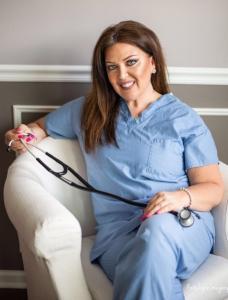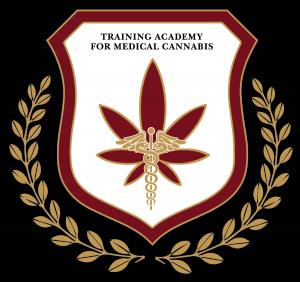(MENAFN- EIN Presswire)


Training Academy for Medical Cannabis
"Before I started the Training Academy for Medical Cannabis, I had very different beliefs about cannabis." Said Nurse and Entrepreneur Lisa Hedin.
UNITED STATES, August 23, 2021 /EINPresswire.com / -- I grew up thinking it was evil and that anyone who used it belonged in jail. It wasn't until states began legalizing that I drilled into the research and saw the lack of acceptable medical research. Instead, I got into the history of the plant to gain a better understanding of it.
After having spent the past 28 years in health education and research, I can honestly say that, in most cases, bias comes from a lack of understanding.
As cannabis becomes mainstream, more people will begin using it but may not feel comfortable talking about it with doctors or nurses, especially if their state has not legalized it. Having healthcare professionals who are unbiased and knowledgeable about cannabis is critical to providing quality care.
What changed my understanding of cannabis is how people have known about its medicinal potential for hundreds of years and how the government purposefully withheld this knowledge.
The Intentional Suppression of Cannabis Knowledge
I don't like being lied to, as most people don't. But when it comes to cannabis, that's what happened. Had it not been for key events, we would have had medically verified research on cannabis by now.
Before the 1937 marijuana tax act started prohibition, or "reefer madness," pharmacies used to sell cannabis. The American Medical Association had even gone against the tax act because they knew cannabis had medicinal properties, which the La Guardia report confirmed.
The La Guardia report was from a commission formed in 1938 in New York that examined the growing cannabis issue by speaking directly with people who used it. The report ran 220 pages long and contradicted all the anti-cannabis rhetoric at the time.
The foreword summarizes it perfectly: "I am glad that the sociological, psychological, and medical ills commonly attributed to marihuana have been found to be exaggerated insofar as the City of New York is concerned."
Then the Controlled Substance Act of 1970 scheduled cannabis as a Schedule 1 narcotic, a classification that gives it no medical value. President Nixon formed the Shafer commission after the Pennsylvanian governor, Raymond P. Shafer, to write a report that would 'blur the lines between marijuana and hard drugs."
But like the La Guardia Report, the Shafer commission was unable to blur the lines after finding that cannabis did have medical value and was not to blame for society's supposed moral degradation. The commission actually advised cannabis decriminalization.
Nixon ignored it, which has resulted in millions of lives behind bars and without the option of safer medical treatment. These reports showed me how the time for cannabis medicine and education is long overdue and that people bringing education to light deserve to be treated fairly and professionally.
Why We Must Integrate Cannabis with Healthcare
Since my revelation about cannabis, I've had quite a few medical employees want to debate me on cannabis. I always ask them to research the endocannabinoid system to have a fair debate.
They are always surprised when they learn that some researchers consider the ECS the largest neurotransmission system in our bodies and wonder why we never learned about it in medical or nursing school?
That's a good question, considering how science proves the endocannabinoid system exists. In short, we never learned about it because of all the legal red tape that comes with cannabis's classification as a schedule 1 narcotic.
But now, we are in a paradigm shift where we have a lot of anecdotal claims on how cannabis can help. As legalization continues its sweep across the United States, research is picking up, and more medical workers are getting involved. Now, we see how cannabis may be the only thing that works and why patients should have access to the option of cannabis in medical settings.
For example, a nauseous chemotherapy patient may respond to cannabis over anything the pharmaceutical industry offers. On that note, its crucial healthcare workers understand how cannabis interacts with prescription medications to avoid serious complications.
Cannabis could also replace opioids as a safer treatment for pain. However, cannabis is currently not available in hospitals due to state and federal limitations.
The Role Nurses Play in Cannabis Medicine
To expand medical access to cannabis, we must gather as much evidence-based research as possible. To better understand patient's needs and provide them with the best possible care, we must understand how the various cannabinoids interact with receptor sites in our endocannabinoid system.
The ideal solution is to reschedule cannabis as a Schedule 2, which would allow more research to occur. However, this is a lengthy and complicated process, which is why more cannabis education is crucial, both in and outside healthcare institutions.
Nurses will play a significant role as the bridge between patients and the healthcare system.
In many cases, nurses are the first point of contact to a patient. They make them feel comfortable and relay information doctors need, like possible drug interactions. In today's world, it is vital for nurses to understand what cannabis is and how it works.
The State Board of Nurses even recommends six principles every nurse should know about cannabis , such as the endocannabinoid system, medication interactions, and how each delivery route can affect patients differently.
As a healthcare professional, I ask that all healthcare workers research cannabis and the endocannabinoid system with an open mind. There is still so much to learn about this plant and its potential to save and improve a patient's quality of life.
That's why at the Training Academy for Medical Cannabis™, we offer peer-reviewed cannabis education courses, consulting, and certificates accredited through the AHNA #1470 for 7.0 credits. You can also check out our directory of registered cannabis nurses ( ) helping to take medicine and wellness to the next level.
Writer Contributor Willow Groskreutz
Lisa Hedin
Training Academy for Medical Cannabis
email us here
MENAFN23082021003118003196ID1102669628
Legal Disclaimer:
MENAFN provides the information “as is” without warranty of any kind. We do not accept any responsibility or liability for the accuracy, content, images, videos, licenses, completeness, legality, or reliability of the information contained in this article. If you have any complaints or copyright issues related to this article, kindly contact the provider above.